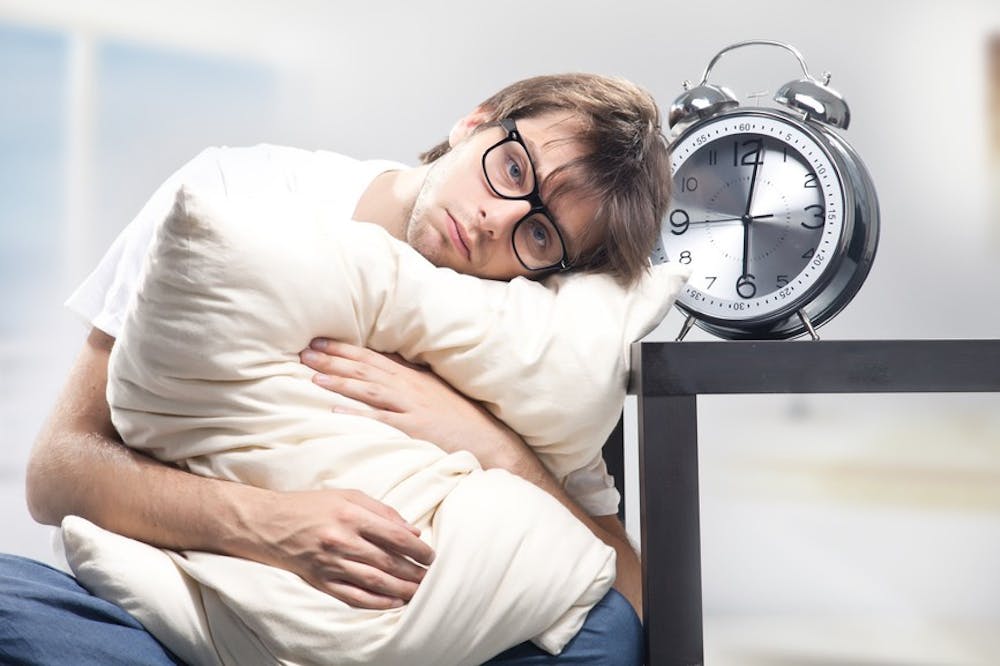Have you ever turned off the lights and gotten into bed, fully intending to go to sleep, when your phone ends up keeping you awake for hours and hours? Scrolling through Instagram and Facebook before bedtime may be a habit people will want to reconsider. Researchers at the University of California, San Francisco (UCSF) recently discovered that the time people spend looking at their smartphone screen, particularly before bedtime, is associated with worse sleep.
In 2015, the Pew Research Center reported that 64 percent of adults owned smartphones. According to the same study, people have become increasingly reliant on their phones, with 68 percent of users using their device to follow along with breaking news events, 67 percent using their phones to share pictures or videos and 56 percent using their phones to learn about community events or activities. Further, two-thirds of Americans reported keeping their phones on a nightstand while they’re sleeping.
Sleep deprivation can lead to higher risk of chronic health problems like high blood pressure, heart disease, obesity and strokes. The correlation between the amount of time spent on a smartphone and health has been well studied, but questions still remain unanswered about the effects of smartphone use on quality of sleep.
Screens from smartphones and laptops emit high energy light, visible light ranging from 380 to 500 nanometers. “Blue” light can suppress production of melatonin, leading to decreased drowsiness, difficulty falling asleep and restless sleep.
Previous studies have shown that looking at your phone before bed can lead to poor sleep as a result of the blue light. However, many of these previous studies did not measure how often those users used their phones before bed and did not take into consideration participant demographics, health information and sleep quality.
In a new study led by Dr. Gregory Marcus, cardiologist and associate professor of medicine at the University of California, San Francisco, researchers hypothesized that a person who spent a lot of time looking at their screen would have increased trouble sleeping.
Their findings were published in PLOS One on Nov. 9. The study analyzed 653 people enrolled in the Health eHeart Study, a self-reporting cardiovascular data program funded by the National Institutes of Health (NIH).
Participants periodically filled out surveys about their health and behaviors and used apps to monitor their pulse, weight and sleep. One app measured how many minutes of screen time the participants had each day.
Daily measurements and results from each app were transmitted to a database. The group also asked that participants report their bedtimes and the times during which they slept and subsequently calculated average sleep times. With so many questions, the researcher hoped to limit bias in the data.
They then calculated the total average screen time for each participant within a 30-day period. Participants provided basic information such as alcohol and tobacco use, mood and physical activity.
Total time exposure averaged 38.4 hours per month or 3.7 minutes per hour. Those who were younger and self-reported as black, hispanic or “other” race/ethnicity had longer average screen times.
They used the Pittsburgh Sleep Quality Index (PSQI) to assess sleep duration and quality. Developed in 1988, the PSQI is a self-reported questionnaire that assesses sleep quality over a one-month interval.
PSQI measures a variety of different components of sleep including how long it takes to fall asleep, how long the sleep lasted, sleep disturbances and daytime dysfunction.
The team found that as smartphone use increased — particularly around bedtime — sleep duration and quality decreased. According to Study Author Matthew Christensen, increased screen time in the hour of or after bedtime was associated with greater trouble falling asleep.
“Our study found that, not surprisingly, people spend a lot of time interacting with their phones,” Marcus said in a press release. “This was the first study to examine such use in a broad population, directly measuring screen time rather than relying on self-reported use. And those with more screen time use had poorer sleep.”





